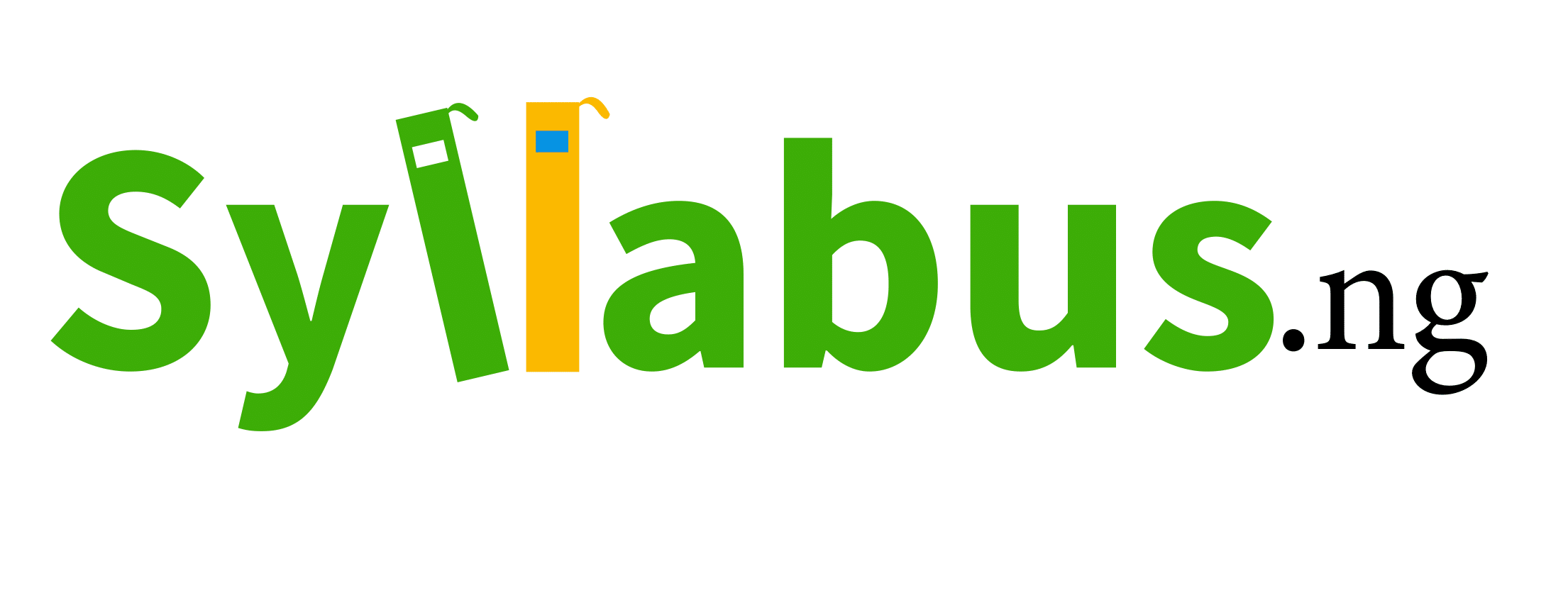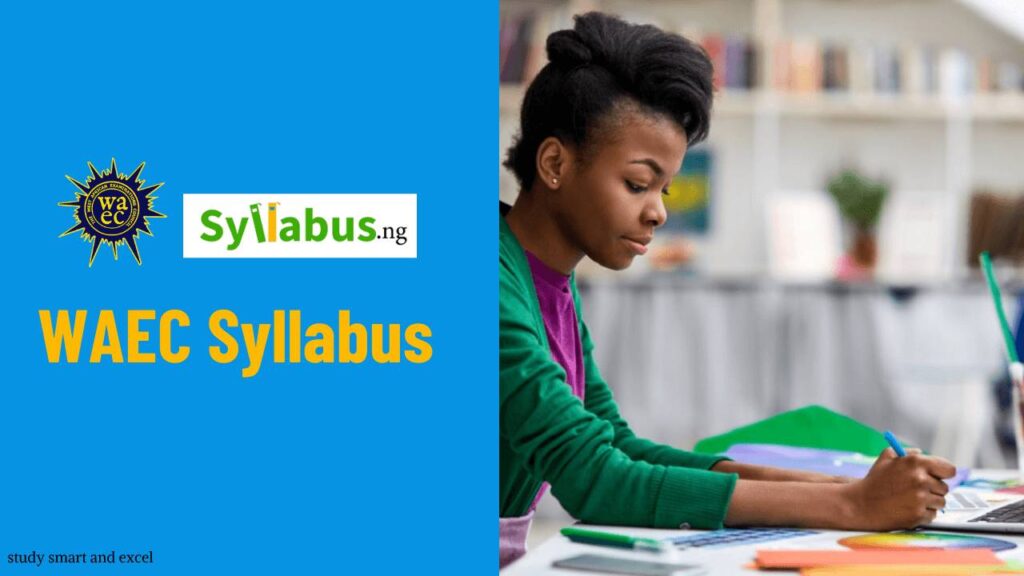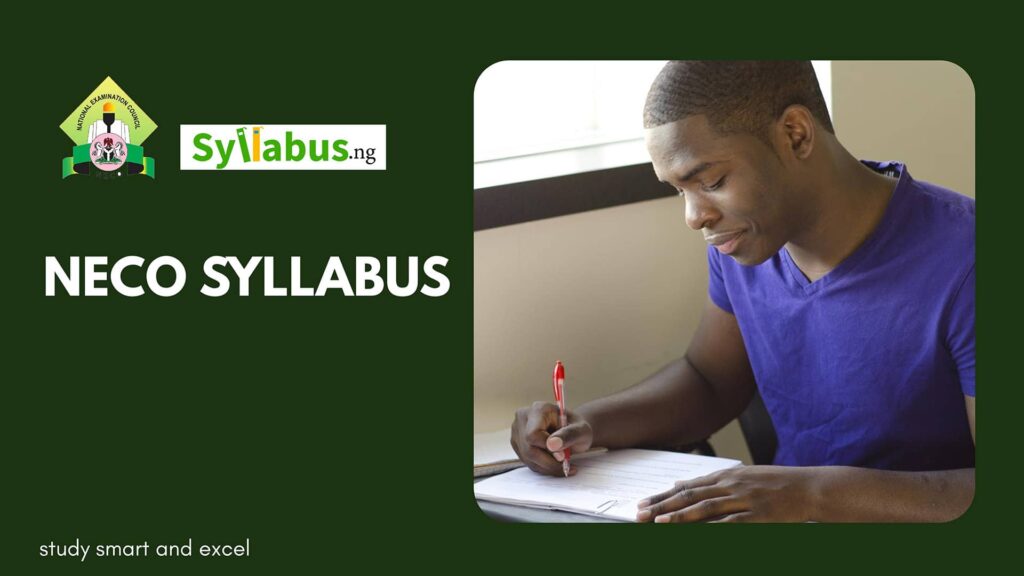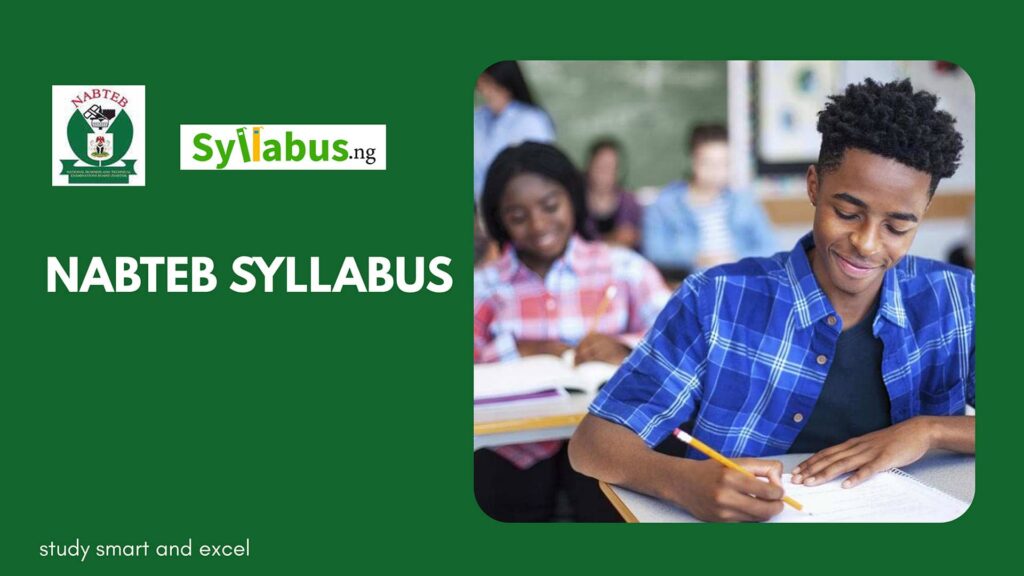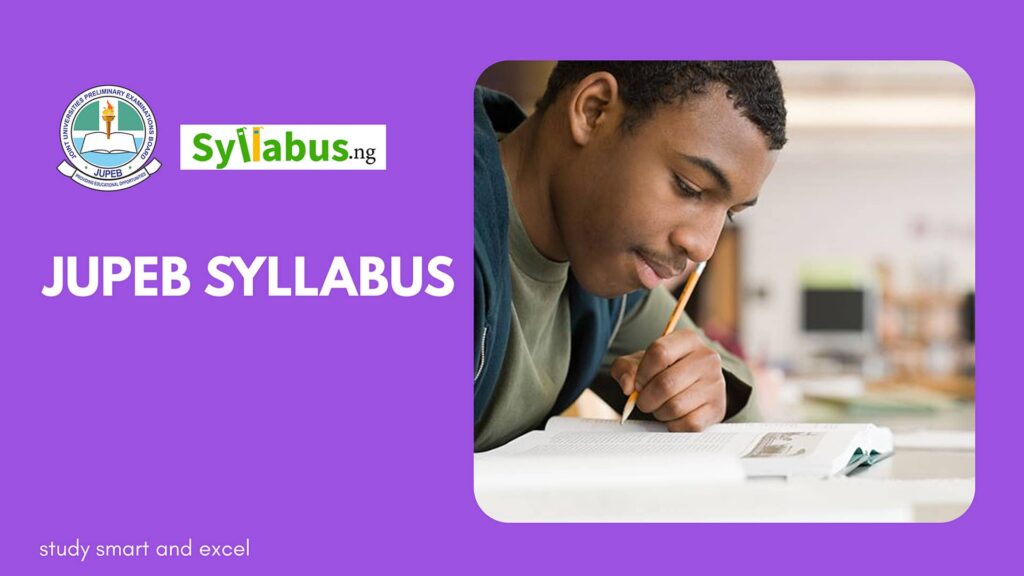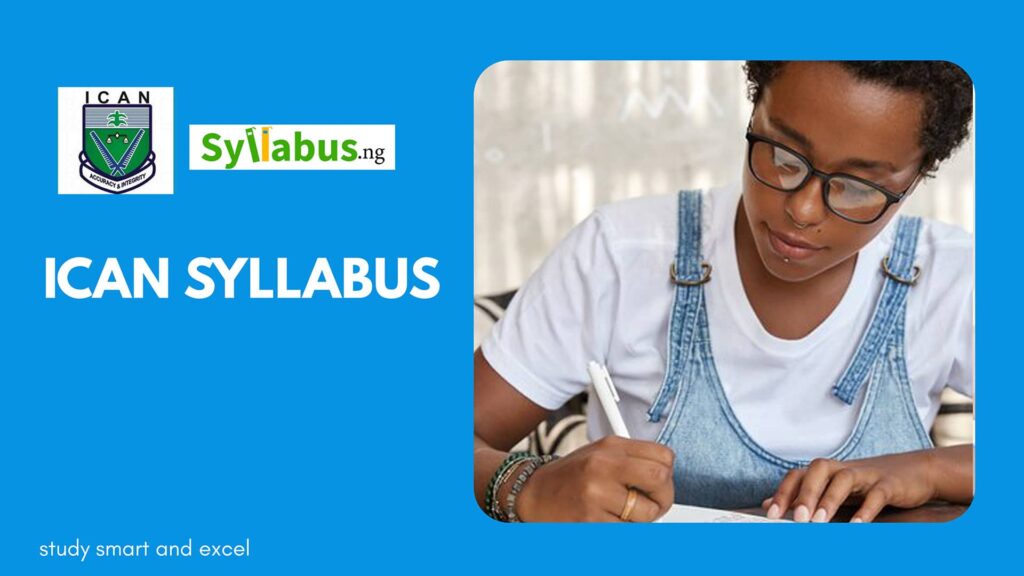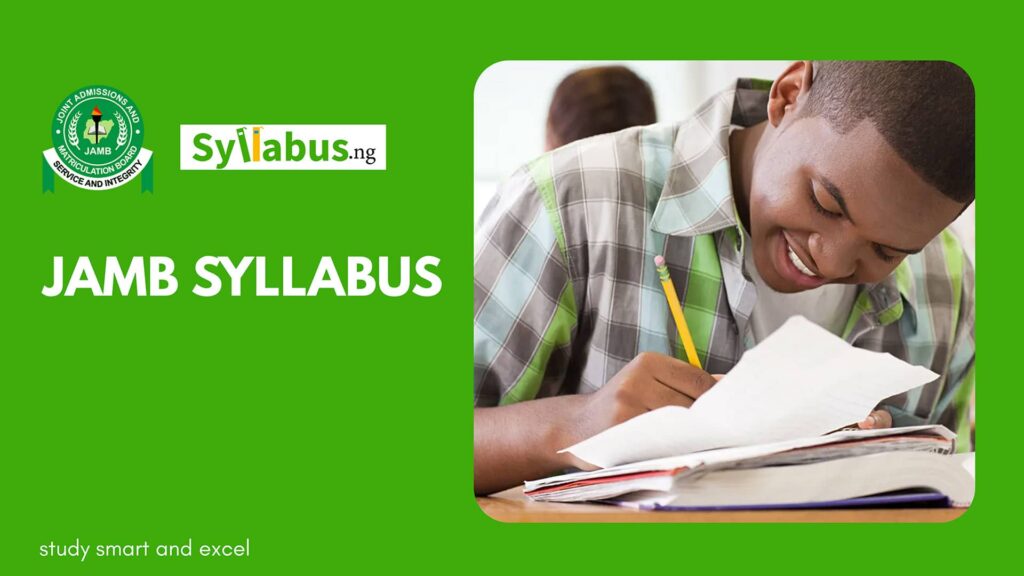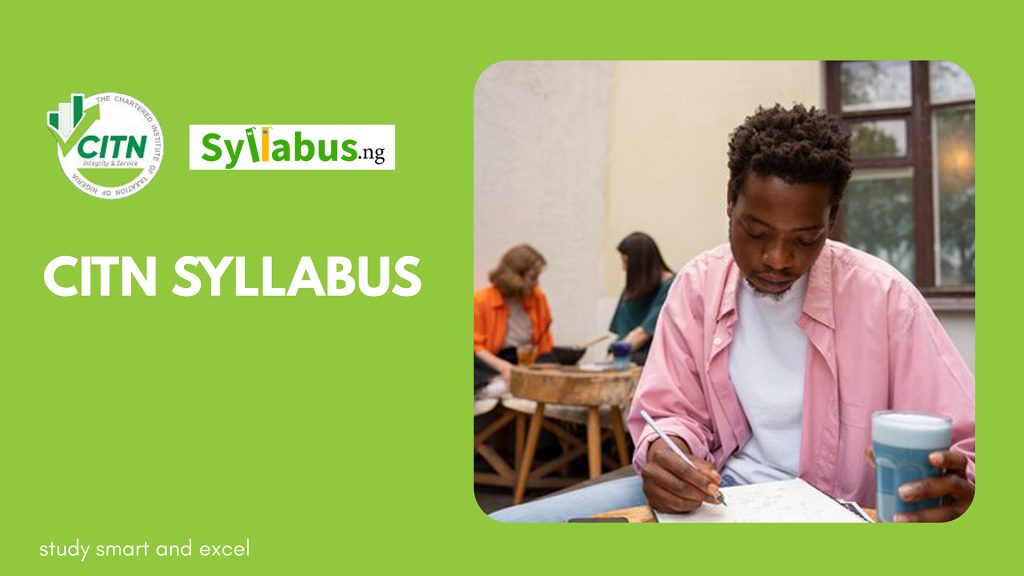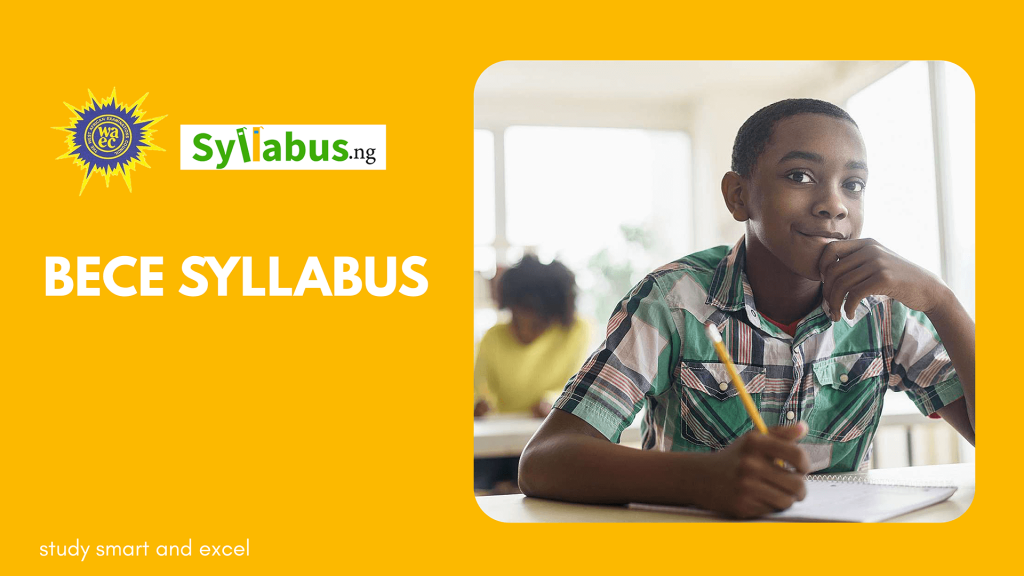WAEC Igbo Syllabus
Excel in your WAEC Igbo exam with ease! Download our comprehensive syllabus today and start your journey to success.

Home » WAEC Syllabus » WAEC Igbo Syllabus
Home » WAEC Syllabus » WAEC Igbo Syllabus
Writing Igbo in WAEC Exams
This syllabus is your number one guide for all who will be writing Igbo in the upcoming WAEC examinations.
To perform well, you should be able to speak, read and write Igbo to a certain level. Familiarize yourself with the Igbo sound system, grammatical structures and other features of the Igbo language like common cultural and traditional practices.
This syllabus will provide you with the necessary information needed to excel in your examinations. This and your past questions booklet is a must-have for all intending candidates.
Marking Guide
The examination shall consist of two papers,
Papers 1 and 2; both of which shall constitute a composite paper and shall be taken at one sitting. The rubrics of the papers shall be written in Igbo. Candidates will be required to answer all the questions in Igbo using the standard orthography metalanguage.
PAPER 1 will consist of sixty multiple-choice objective questions all of which should be answered within 1 hour for 60 marks. The paper will have three sections, Sections A, B and C. The questions in the sections will cover the following aspects of the subject:
Section A: Language
Section B: Literature
Section C: Culture
Download WAEC Recommended Igbo Syllabus
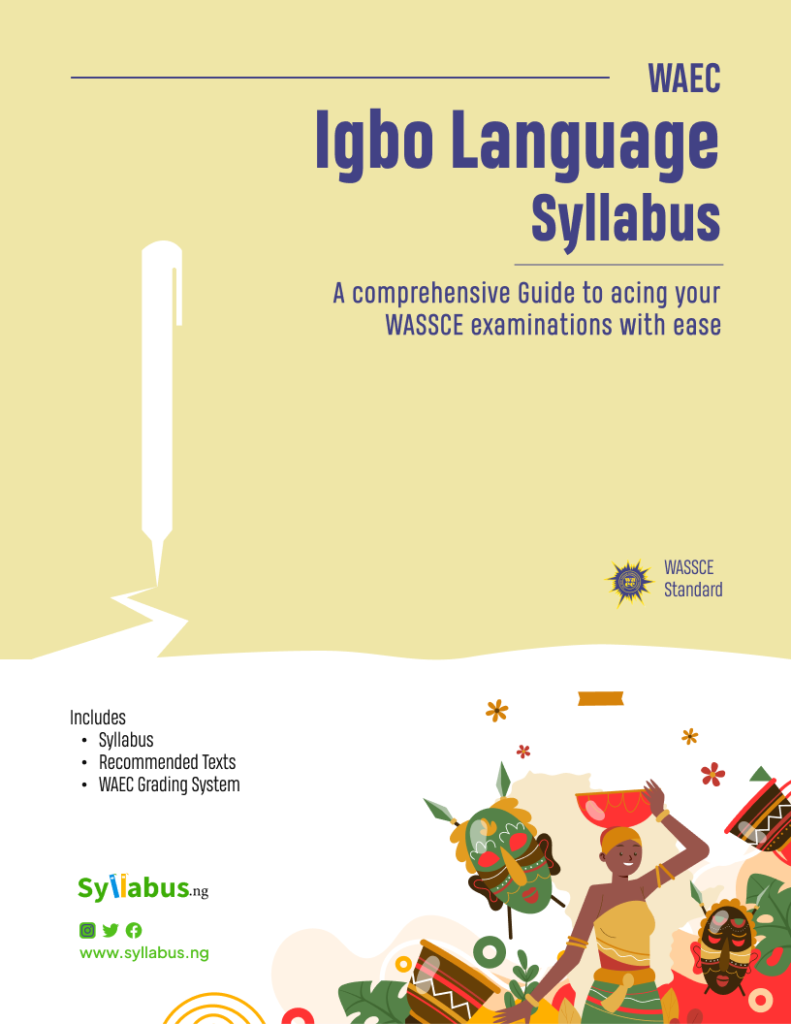
Excelling your WAEC Igbo exam starts from knowing what’s expected of you.
Don’t be left behind. Download the Syllabus today.
Igbo Syllabus for WAEC Exams
| WAEC IGBO LANGUAGE SYLLABUS | ||
| SN | TOPICS | OBJECTIVES |
| PAPER 1 | ||
| A | LANGUAGE | i. Comprehension (2 short passages) ii. Composition/letter writing iii. Sound system iv. Grammar v. Translation |
| B | LITERATURE | i. Basic Principles of Literary Appreciation ii. Oral Literature (Prose, Poetry, Drama) iii. Written Literature (Prose, Poetry, Drama) |
| PAPER 2 | ||
| A | ESSAY | Part I: Composition/ Letter Writing Candidates are advised not to spend more than 45 minutes on this section. There will be five topics from the following essay types and candidates will be expected to write on one of them in about 300 words: (1) Narrative; (2) Descriptive; (3) Argumentative; (4) Expository; (5) Dialogue; (6) Debate; (7) Letter writing. Part II: Sound system Two questions will be set for candidates to answer one of them. The questions will test candidate’s basic knowledge of the following areas: (a) Igbo Phonemes: Vowels, Consonants, the Syllabic nasal, (i) their production, and (ii) their classification. (b) Syllable Structure. (c) Sound Processes: vowel harmony, vowel assimilation, vowel elision and consonants elision. (d) Tone and tone notation. (e) The Igbo alphabet. Part III: Grammar Two questions will be set for candidates to answer one of them. The questions will test candidate’s knowledge of the following areas: (a) Spelling rules. (b) Word formation. (c) Igbo dialects and Standard Igbo. (d) Loan words. (e) Igbo metalanguage (new words). (f) Word classes: The noun, verb, pronoun, conjunction, preposition, etc. (g) Grammatical categories: tense, number and person. (h) Phrases and Clauses: their types and functions. (i) Sentences: i. their constituents and types. ii. Sentences containing Direct and Indirect Speech. (j) Lexis and Structure. (k) Punctuation marks. |
| B | LITERATURE | Part I: Oral Literature Three questions will be set for this part and candidates will be required to answer only one of them. All questions in this section will be based on the prescribed texts. In this part, candidates will be required to have basic knowledge of the following: (a) Definiton and characteristics of oral Literature (b) Classification and functions (c) Literary devices (d) Folktales (ifo) (e) Anecdotes (ụkabụilu) (f) Legends (nkọkịrịkọ/akụkọ dike) (g) Myths (nkọmịrịkọ/akụkọokike/mmalite) (h) Poems (abụ) (i) Songs (uri) (j) Proverbs (ilu) (k) Riddles (agwụgwa) (l) Chants (mbem) (m) Oral drama (ejije ọnụ) (n) Tongue twisters (okwuntụhi) Part II: Written Literature Three questions will be set for this part and candidates will be required to attempt only one. All questions in this section will be based on the prescribed texts. |
| C | CULTURE | The following areas will be covered. Customs – Omenala (a)i. Njirimara ndị Igbo-asụsụ, ejiji, omenala, ekpemekpe , agbambọ, dg. ii. Ekele ndị Igbo n’oge dị icheiche. (b) Mmemme -ọjị, ịtụ nzụ, ịkwọ aka ụtụtụ, ịgọ ọfọ, dg. (c) Nnabata ọbịa. (d) Ọmụmụ nwa – ile ọmụgwọ, ibi ugwu, ikupụta nwa, ịgụ aha, ịzụ ahịa nwa, ịhụ eze, dg. (e) Nkwenye – ịlọ ụwa, ọgbanje, nrọ, ihi/isi anụ, ịha/ịchụ mmiri, dg. (f) Emume – ọfala, ịbọ ụzọ, ịwa ji/iri ji, igbu ewuukwu,iru mgbede, ịwa akwa, akwamozu, ịgba mkpe, ịgụ afọ, mbarị, ụdara, dg. (g) Egwuregwu – egwu ụmụaka, ịgba/ịchụ oro, ịtụ okwe, ịzụ nchọrọkọtọ, ịkpọ okwe, mgba, ịkpọ ọga, okoso, egwu ọnwa, dg. (h) Nsọala/Arụ – ihensọ, ebensọ, anụnsọ, osisinsọ, ime ibeeṅe. ii. Institutions – Ewumewu (a) Ewumewu ọchịchị – ezinaụlọ, ndị eze ọdịnala, nze na ọzọ, ụmụọkpụ/ụmụada, otu ọgbọ, otu nzuzo, otu inyomdi, ụmụnna, ogbe, obodo. (b) Ewumewu mmekọrịta mmadụ na ibe ya – alụmalụ, ezinaụlọ, ịgọ ọgọ, nwanwa/nwadiala, ịgba ndụ, ịgba orikọ (c) Echichi – Lọọlọ, Iyọm, Ọmụ, Ezeji, Jioke, Atama. (d) Abamaba – Mmọnwụ,Ọkọnkọ, Ekpe, Ọmabe, Odo, Dibịa. (e) Ewumewu akụnaụba – ike ekpe, iri ekpe, ala na ihe dị na ya. (f) Akaọrụ – ịkpụ ụzụ, ịgba nta, ịkụ azụ, ọrụugbo, ịkwa nka, ịkpụ ite, dg. (g) Ewumewu ofufe – ịgba afa, ịchụ aja, dg. (h) Ngwa ofufe – ọfọ, ikenga, okpesi, ogu, ọtọnsi , dg (i) Ihe ofufe – Ndịichie, Arụsị, Ikenga, Ala, Mmụọ mmiri, Arụsị/ Agbara dịka Ogwugwu, Ahịajiọkụ, Agwụ, Amadịọha, Kamalụ, Agbala, Ibini Ụkpabị, Ojukwu, Igwekaala, Idemmili, dg. |
Recommended WAEC Igbo Textbooks
YEAR | PROSE | POETRY | DRAMA |
1981-1983 | Oral – Omalinze Written – Urunwa Obinna | Abu Na Egwuregwuodinala Utara Nta | Obidiya |
1987 | Written Chinagorom | Abu Na Egwuregwuodinala Akpa Uche Eke Nne | Ugomma |
1988 | Written Obiefuna | AkpaUche | AkuFechaa |
1989 | Written Uwaezuoke | AkpaUche | AkuFechaa |
1990 | Written Uwadiegwu | Nkemakolam | Obidiya |
1998-2000 | Oral Oka Mgba Written Dinta OkpaAkuEriEri | MbemnaEgwu Igbo Akubundu AkpaUche | Onwukube OkweAgbaala |
2002-2005 | Oral omalinze Written Juochi/Adaeze | Abx Na Egwuregwuodinala Utara Nta EchicheMiri Emi | UdoKaMma Aju Obi |
2006-2010 | Oral Oka Mgba Written Iheojoo GbaaAfa | Abu Akwamozu Echiche | NwataBulieNnaYaElu |
2011-2015 | Oral Mbediogu Written UjaDufuo Dike | Abu Na Egwuregwu Uche Bu Akpa | Aturu Ga-EpuMpi |
Frequently Asked Questions About WAEC Igbo Exam
All WAEC Syllabus
Download WAEC Recommended Igbo Syllabus

Excelling your WAEC Igbo exam starts from knowing what’s expected of you.
Don’t be left behind. Download the Syllabus today.
